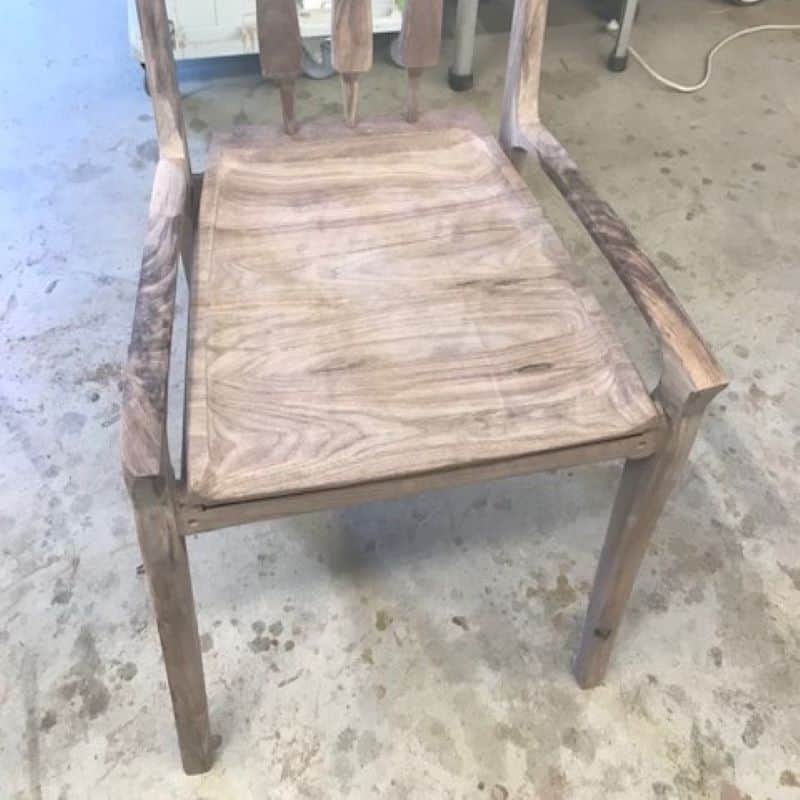Woodworking is becoming increasingly popular as the internet allows us to share the benefits of getting into the hobby and the various resources you can learn from. If you are thinking about getting into woodworking, one of the first things you likely thought to yourself is if woodworking is difficult.
Woodworking is not hard; more accurately, it is hard to master. Woodworking has a very high skill ceiling, but learning the ropes isn’t too difficult as long as you have the drive to understand it.
We will be talking about the learning curve of woodworking and provide some useful tips when getting started. Keep on reading if you’d like to learn more!
Woodworking: A Brief Overview
Woodworking describes anything created from wood, and various categories of wood-related creations fall under it, such as carpentry and wood artwork.
Most people envision someone working in a workshop with various power tools and heavy equipment. While that is a part of woodworking, in reality, it can be as basic as engraving a sign or using a chisel to smooth out wood material. Woodworking is what you want to make of it; if you want to build furniture, TV stands, etc., you can! If you want to create small trinkets, you can do that too.
Woodworking can also be a hobby or a source of revenue. It’s a skill that you can learn and apply how you see fit. If you just want to make things for the satisfaction of it and share your accomplishments with others, that is a good enough reason to start. But you might also want to consider it as a future source of income as you get better and learn how to sell your work.
But you have to start somewhere, and you are probably wondering if woodworking is difficult; it sure looks foreign and challenging on the outside, but what is it like?
Is Woodworking Hard? It Depends
The question of “is woodworking hard?” can yield different answers. If you were put into a workshop and instructed to build a small, basic table with no prior knowledge of woodworking, then you’d be hard-pressed to know where to even begin. Some people will tell you that woodworking is easy peasy while others will tell you that there is a rewarding challenge.
Both answers are right in their way. Woodworking will be hard if you don’t know what you are doing, and your skill will dictate the difficulty of it all. You could say this could apply to any hobby, but woodworking is one of those things where if you don’t know anything about it, then it is going to be very challenging to put something together; however, if you know the basics, which aren’t that hard to learn, then it isn’t going to seem so hard.
What we are trying to say is that woodworking has a relatively low barrier of entry. Almost anyone can get up to speed on the basics and begin to practice by doing simple projects. In that sense, woodworking isn’t hard. You can make cutting boards or other easier projects as a beginner and have a great time.
The challenging part of woodworking is that it has a very high skill ceiling. Intermediate and advanced level woodworking will take time, patience, and experience to get to. If you try to jump into the deep end, you will probably not have the best time.
In conclusion, woodworking isn’t something to be intimidated by; just start slow, and you’ll have a good time getting into it! But it isn’t all sunshine and rainbows; there are some frustrating aspects and things to be aware of before heading into it so that you aren’t surprised.
Difficulties of Woodworking and Things to Remember
Despite entry-level woodworking not being too difficult to learn, woodworking, in general, isn’t a cakewalk like some people might claim. There are some hardships here and there that you will have to deal with, but that only makes the victories even sweeter.
You Will Make Mistakes and Have to Restart Sometimes
The more complex the project, the more room for error there is, and every, and we mean every woodworker fails at some point and has to scrap a project that they are deep into, which is where the real challenge lies. Woodworking is an art that requires precision, and there isn’t a retry button like there is in computer 3D modeling.
But don’t beat yourself up if you make a mistake. Even veteran woodworkers make errors that will have them scrapping a project or heavily modifying it around the mistake.
Do Not Compare Yourself to Others
This is something we see a lot of people do, and it will only ruin your journey. There will always be someone better than you, and there will always be someone better than that person. If you made something that you are proud of, then be proud of it.
Woodworking is a hobby that is all about striving for accomplishments and improving yourself one project at a time. If you successfully made a stool, don’t think it had to be as good as the person who has been woodworking for 12 years.
How to Start Woodworking
Before we sign off, we wanted to throw in a very brief beginners guide, so you know where to start.
Many beginners face one challenge before they can even begin learning is worrying about how much money the tools will cost them. Woodworking looks like an incredibly expensive hobby on the outside, and it can be if you want it to be, but it can also be relatively affordable if you shop right.
First off, you can do woodworking with just a chisel set such as this REXBETI 10pc Chisel Set, which is typically $50 or less. You can do plenty of projects with just chisels and your choice of finish, so don’t think you need to dive into spending money on power tools immediately.
But if you do want to do the type of woodworking that is more commonly associated with the hobby, then you only need seven basic power tools to get started:
- Miter Saw
- Circular Saw
- Jigsaw
- Random Orbital Sander
- Table Saw
- Drill & Driver
- Workbench
Some will say you need even less than this, but for versatility’s sake, these are the tools most people will want to start with. You also need to account for expenses such as glue, sandpaper, nails, etc., but we want to get the point across that you don’t need to spend $5,000 to get started.
We recommend trying shopping for these tools since you can get quality gear at excellent prices this way. Many woodworkers like to upgrade their tools routinely, and so it should be easy to find this gear for a good price.
Next, you’ll need to know how to put these tools to use; after becoming familiar with your tools, you’ll want to start with simple projects such as making a shelf. Follow a reputable tutorial online that is easy to understand and just go for it. But don’t forget safety!
We have linked a quick video below that shows you how to make a simple shelf, perhaps consider this as your first, second, or third project if you end up getting set up with gear!
Conclusion
Woodworking isn’t hard to learn, but it is hard to master. As a beginner, you should focus on simple projects that allow you to become familiar with basic tools and become familiar with working with wood in general. We think you’ll have a great experience if you take it one project at a time!
Sources
- The DIY Plan: Is Woodworking Hard to Learn?
- Westfarthing Woodworks: 13 Myths About Getting Into Woodworking
- Make from Wood: Is Woodworking an Expensive Hobby?

